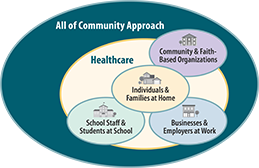
MSAA Matters
April Special Edition Volume I
April 2020
Dear Colleagues,
Please see the summary notes from the MSAA Finance Committee's virtual meeting with Jeff Riley, Massachusetts Commissioner of Education on Friday, April 3rd. A big thank you to Julie Vincentsen, MSAA Vice President, for capturing the essence of our hour long meeting. Throughout this document, topics for each paragraph are bolded in case you only have time to read a portion of this document.
Have you found yourself wondering in these last three weeks: Why won't the Commissioner just make a decision about MCAS? The calendar year? April vacation? Grades or no grades? Credit, no credit? Pass/Fail? Graduation requirements? Students getting promoted and transitioning to the next year? Teacher evaluation? There are so many decisions that need to be made, and all DESE is giving us is recommendations and guidance?
These were the prominent topics during our conversation with Commissioner Riley when MSAA Finance Committee Members and staff met with him on Friday, April 3, 2020. The Commissioner spent time explaining that many of these decisions are left to the local school authorities which is why so much of what he and his office communicate out are recommendations to districts. DESE is responsible for making sure that districts comply with federal and state laws and DESE regulations. Everything outside of these three domains is left to the local authorities. Commissioner Riley shared that many states across the country have greater control at the state DESE level, and edicts from those states are coming out that direct a consistent, state-wide response.
The Commonwealth of Massachusetts, in our governance structure, values local control, therefore many decisions are left to local School Committees and Superintendents to decide. For example, April vacation is a hot topic right now - should we have it and give everyone a much needed break and pause in our remote learning plans, or should we cancel it in order to maintain consistency for children. This decision is not Commissioner Riley’s to make. He can waive the 185 day requirement and allow us to have remote learning, but he can not cancel April vacation.
That decision will be made at the local level and may vary from district to district. For example, I am the Principal of Hanscom Primary School in the Lincoln Public School District. We sent home a survey to staff Monday and parents today so the School Committee can deliberate and vote on this issue at this Thursday’s virtual meeting. The lack of consistency on this decision may infuriate some of our membership, but the loss of local control of our schools and districts would be worse.
In addition, MCAS is not in Commissioner Riley’s control right now either. DESE was responsible for the first step - applying for a waiver with the Federal Government which has since been granted. It is now up to the MA State Legislature to change the law that requires us to administer this assessment. A bill was passed by the House of Representatives Thursday evening that gives the Commissioner the ability to make this decision. The Senate is currently reviewing the bill and should be ready to vote soon. Click here for an article from the Boston Globe that explains the legislation moving through the State House now. The Finance Committee shared our support of the cancellation of MCAS on behalf of our membership.
We spent a long time discussing our concerns regarding the equity aspects of remote learning. President Kathleen Duff shared that the membership is deeply troubled by this issue, and that “we are deeply concerned that the divide between the haves and the have nots could be exacerbated by this closure.” The Commissioner shares our concerns. He did state that “Schools are doing an amazing job feeding our children.” Further guidance is coming out soon regarding equity and safety issues during remote learning. The Commissioner also shared that the bulk of the monies received from the CARES Act will go to the districts who are less resourced.
Throughout the meeting, the Commissioner and his staff shared valuable links from the DESE COVID-19 resource page. Click here for access to that page. While you will not have the time to read through all of the documents, it is a great resource page when you have a question. If you can not find the answer to your question, please do not hesitate to reach out to your Association. We are here to support you every day, but especially during these unprecedented times.
In regards to the federal stimulus money that just passed through the CARES Act, the Commissioner shared that MA should be in line for about $200 million. He cautioned us to not view this as ‘new’ money as the Legislature is going back to the drawing board for next year’s budget.
Many of our members submitted questions regarding high school such as graduation requirements, grades, MCAS, credits, etc. A High School guidance document is going to be published soon. The draft was shared with the Finance Committee after the meeting and was distributed to the High School Committee for review this past weekend. We provided our feedback at the end of the day, Monday. Thank you to those members of the High School Committee who were able to give of their personal time to do this. The Commissioner shared that they have been in communication with the Department of Higher Education to create this guidance document. The Commissioner and his staff were not able to answer the question regarding the military’s requirement of a high school diploma. They are going to look into that and get back to us. We will communicate that to the membership when we do hear.
Many members asked questions regarding student engagement as many are struggling with getting students to ‘attend’ class meetings and complete the work being provided. The Commissioner encourages all of us to treat these students like we would if they were chronically absent when we were still attending live school - reach out to your families, determine what the barriers are and create a plan with supports in place to increase engagement.
In talking about our membership’s concern about a loss of instructional time now and the implications for the fall, Heather Peske, the Senior Associate Commissioner for Instructional Support, shared that decisions about pacing are made at the district level. DESE is not well positioned to provide guidance on this as every district does it differently. She did share that the “look for guides” may be useful for teachers as they plan instruction upon school’s return. In the chat feature Dr. Peske writes, “In addition to these resources, The Center for Instructional Support staff are ready to answer specific questions and provide advice to districts. Districts are welcome to email instructionalsupport@doe.mass.edu ."
Russell Johnston, the Senior Associate Commissioner for the Center for District Support worked to answer our members questions regarding Special Education. He shared that he conducts weekly calls with the Directors of Special Education to work through their questions and concerns. He provided a link to the COVID-19 Special Education site which has FAQ documents as well as the presentations for his weekly meetings. He stressed that our goals should be maintaining skills already taught. MSAA sponsors a weekly Zoom meeting for Special Education administrators. Reach out to Beth Wittcoff at wittcoffb@msaa.net for the meeting link and password.
Heather Peske spoke to the questions regarding Educator Evaluation. They are currently working with all stakeholders on a guidance document. They are currently looking to analyze the impacts of the school closure on educator evaluation. They know there needs to be flexibility with the current regulations and are setting up their guidance with the following four goals:
We need to prioritize teaching and learning right now.
We need to honor the hard work and performance of educators prior to the closure.
We need to recognize all the efforts educators are currently putting forth.
We need to focus on support and development of the workforce.
DESE encourages district leadership and local unions look at the flexibility that they have around this issue at the local level, and make one time exceptions as needed. DESE is hoping to push out more specifics soon.
A question was asked about the ESSA (Every Student Succeeds) Act Waiver. Yes, DESE did apply and receive an ESSA Waiver. DESE will put together a list of all of the waivers and the status of them and add it to their resource website. The Commissioner shared that the federal government has been better than expected in granting waivers and they have been doing that in a timely fashion.
In closing, we want to share that we heard loud and clear from the Commissioner that he believes strongly that administrators and educators across the Commonwealth are doing an amazing job! He used the words “above and beyond,” “impressive,” “thank you,” and “united front.” Your Association would like to echo those words - keep up the good work and please reach out for support as needed. We are better together!
Respectfully Submitted,
Julie Vincentsen
MSAA Vice-President
Great summary, Julie, thank you!
Warm regards,
Beth
Beth Wittcoff
MSAA Assistant Executive Director
Middle Level and Elementary Committee Liaison
MSAA Matters Newsletter
Social Media
NAESP Leadership Immersion Institute
NAESP Leadership Immersion Institute
May 5-6, 2020 | Augusta, ME
This 2-day event is a highly structured, interactive professional learning opportunity that integrates research-based best practices in mentoring and adult learning with educators’ knowledge and experiences. Principals from all grade levels and district personnel are encouraged to participate! Training topics include:
- Mentoring Principals to Lead Learning Communities
- Build Culture: Creating Schools that are Great Places to Teach and Learn
- Empower People: Leading Learning to Bring Out the Best in Teachers and Students
· Optimize Systems: Ensuring School Operations, Processes and Contexts Support Effective Teaching and Learning
The program curriculum has been newly redesigned to align with NAESP’s 2019 edition of Leading Learning Communities: Pillars, Practices, and Priorities for Effective Principals, the 2015 Professional Standards for Educational Leaders, and NAESP’s Mentor Competencies. To learn more about the program, visit https://www.naesp.org/mentor or Register
Upcoming Professional Development, Special Events & Conferences
May
Tuesday, 5/12, Recalibrating Schoolwide Discipline and Student Support: Building a Restorative and Accountable Approach, Larry Dieringer, 8:30 am - 3:00 pm, MSAA Office, Register










